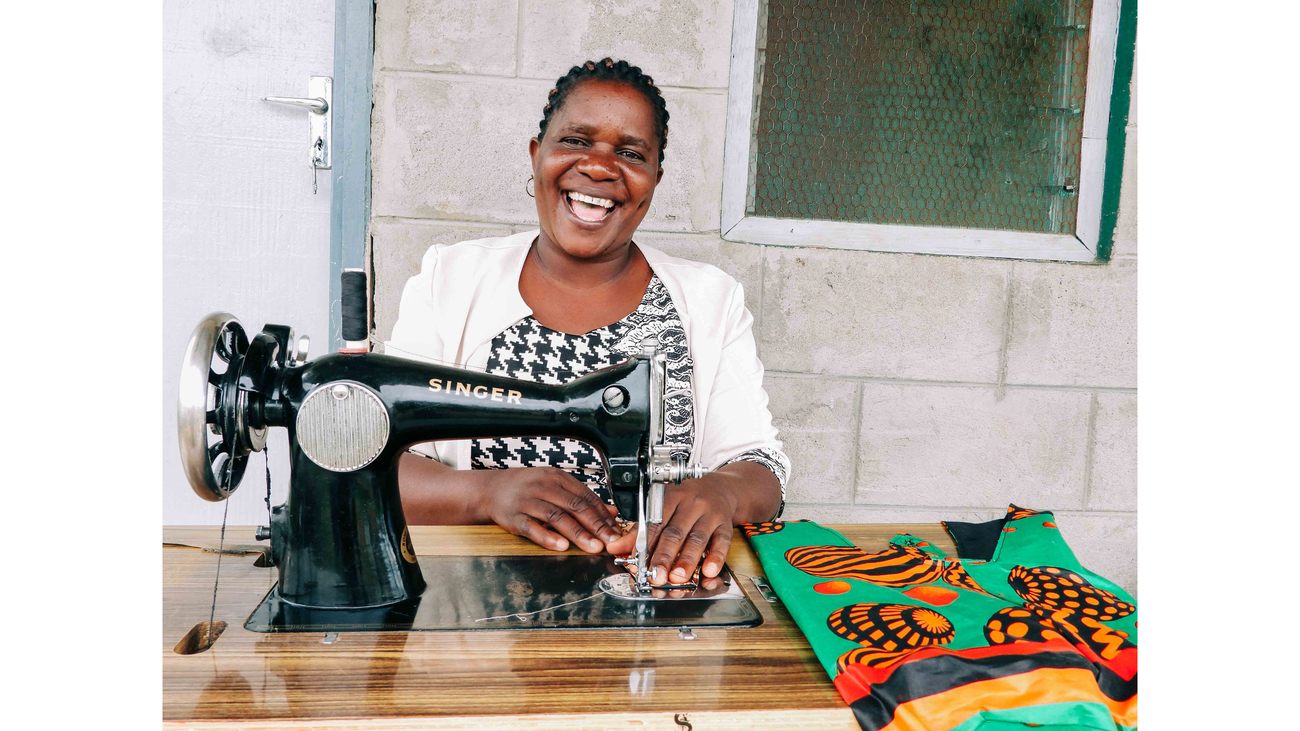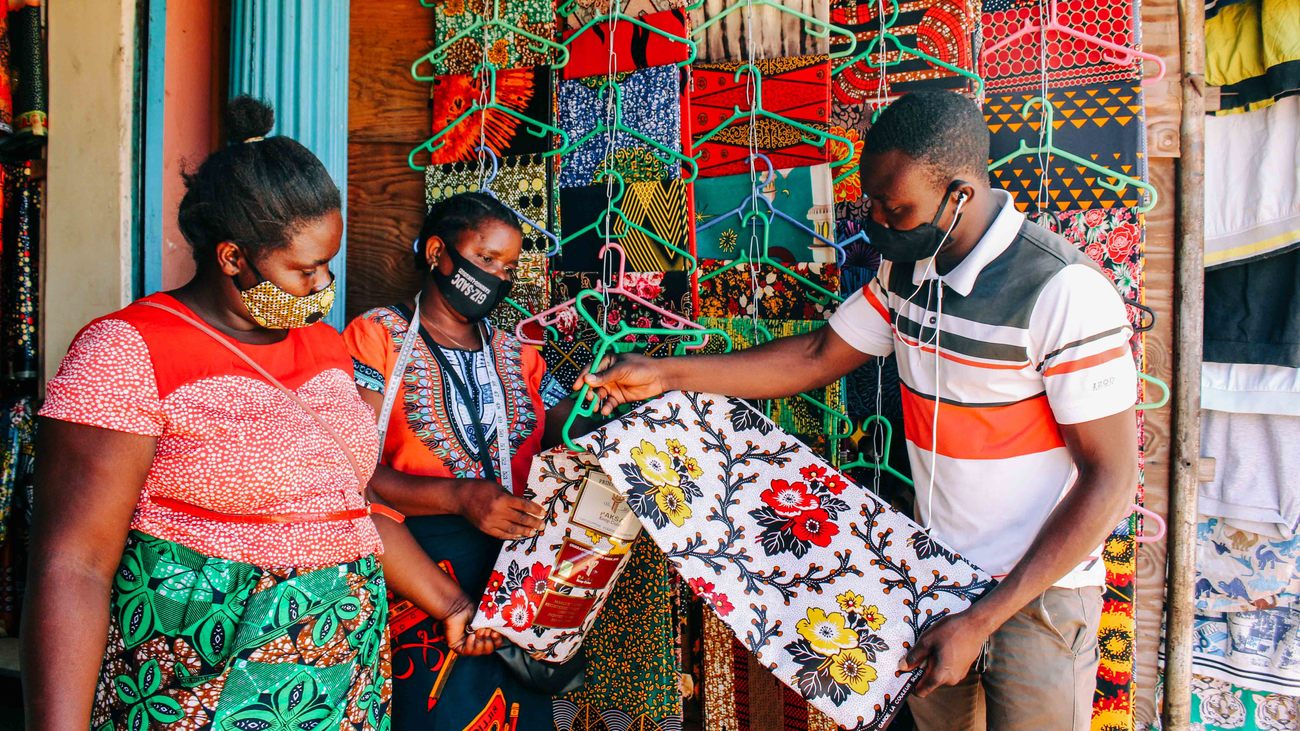Blog
What is Earth Day?
Read moreLifupa Women's Group tailors cooperative magic in Malawi’s Kasungu National Park

Kasungu National Park in Malawi is a vast 2,300 km² (900 square mile) space of protected wilderness home to a rapidly growing elephant population and a variety of other wildlife species. It may be a surprise to learn that a small and vibrant community of about 200 people can also be found within this massive conservation area.
With origins as the Lifupa scout camp, it became a base for rangers and conservation officials whose families gradually joined them. The community grew, houses were built, and infrastructure improved to cater for their needs – such as a schoolhouse and homes for the teachers who couldn’t commute long distances. Just three hours from Malawi’s capital of Lilongwe, Kasungu National Park was a thriving destination for tourists who visited to see its wildlife.
The glory days didn’t last. Rampant poaching reduced the elephant population from over 1,000 in the late 1970s, to less than 50 by 2015. Most of the other wildlife also disappeared. Tourism dried up, and with it the incomes and livelihood of those living in Kasungu National Park.
In 2015, Malawi’s Department of National Parks and Wildlife (DNPW) invited IFAW to work in Kasungu National Park to take on the poachers and to reverse the downward spiral. This has become part of IFAW’s Malawi-Zambia Transboundary Landscape Conservation project.
Our first challenge was to tackle poaching and create alternative sources of income—it was important to involve the Lifupa community in the project every step of the way. In consultation with the community, we looked to alternatives, collaboration, and fresh thinking for inspiration.
People began to take on roles to support the work that didn’t need a wildlife ranger or law enforcement official. This included refurbishing buildings, managing the rations store, clearing the airstrip, and more. IFAW helped to initiate a tailoring workshop that now provides uniforms for every ranger in Malawi. We began to collaborate on construction of the boundary fence to prevent conflict between wildlife and those communities surrounding Kasungu National Park.
Taking it one step further, the Lifupa Women's Group was created in 2017. This incredible group of 44 women willingly admit that boredom and a lack of income during the lean days had sent many of them fishing illegally in Kasungu National Park’s only dam. Not only were they fishing in a protected dam, but they were putting themselves at risk of attack from hippopotamus, widely considered Africa’s mostly deadly creature.
To inspire new opportunities to earn and put food on the table, the women were given the opportunity to run a “tuck shop” convenience store where villagers could shop for everyday groceries nearly 50 kms from the busy town of Kasungu. They also learned to mill the “ntsima” maize which is a staple on every dinner table.

Today the talented women also support themselves and their families through the sale of beautiful handcrafted goods. Using Singer treadle sewing machines, the Lifupa Women’s Group hand-pick traditional Malawi chitenje fabrics that contribute to a vibrant range of sunhats, hand bags, laptop pouches, and more.
Bright and beautiful patterns are what make cotton, wax-dye chitenje so striking. It is a multi-purpose fabric and has a myriad of uses, from being worn as a sarong to swaddling a baby. Every small town has its chitenje market, and everyone has a favorite stallholder.
The group operates as a true co-operative. Every woman pays a small annual membership fee and all decision-making happens as a group. Every cent earned goes into a central pot and is shared equally. The 44 women then decide as a group how much they will contribute as additional earnings to the individuals who have done the bulk of the work on a specific project.
For women like Sinaya Yusufu, the Lifupa Women's Group has changed their lives. “I was depending on my husband for nearly everything because I had no means of earning an income on my own, " said Yusufu. "But now the story is different because I am able to get my income through tailoring. Through this business, I am empowered economically. I have managed to send my children to school. My husband’s income could not have been enough to educate our children."
The Lifupa Women’s Group’s work has helped secure their family’s incomes and future. Children are well fed and thriving at school, seed supplies can be purchased to grow future crops, and there is finally a little money over for life's extras.
Our work can’t get done without you. Please give what you can to help animals thrive.
Unfortunately, the browser you use is outdated and does not allow you to display the site correctly. Please install any of the modern browsers, for example:
Google Chrome Firefox Safari